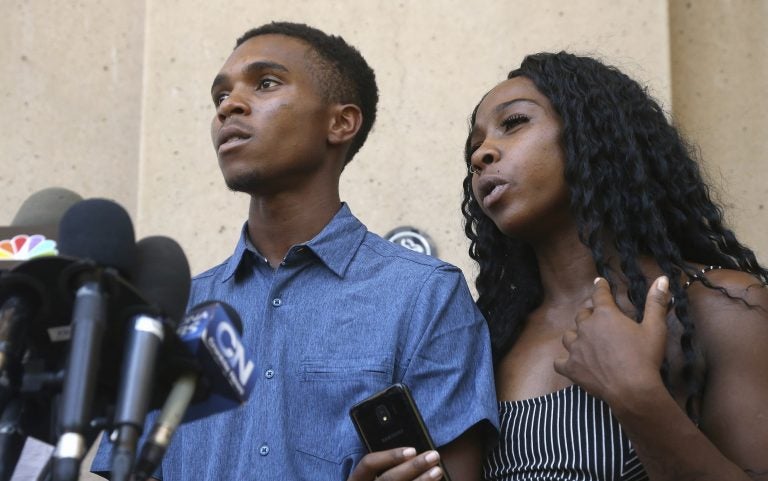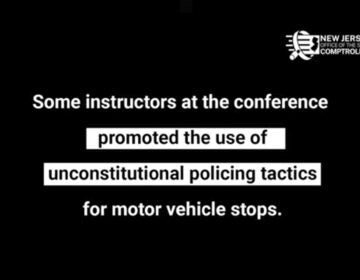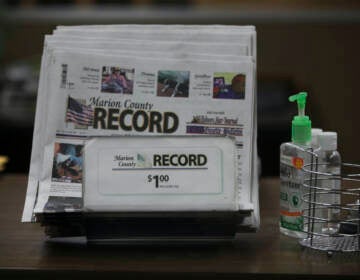Making communities safer takes more than changing policing
What can a 4-year-old do that would make police pull guns on her pregnant mother?

Iesha Harper, (right), answers a question during a news conference as she is joined by her fiancee Dravon Ames, (left), at Phoenix City Hall, Monday, June 17, 2019, in Phoenix. Ames and his pregnant fiancée, Harper, who had guns aimed at them by Phoenix police during a response to a shoplifting report, say they don't accept the apologies of the city's police chief and mayor and want the officers involved to be fired. (Ross D. Franklin/AP Photo)
What can a 4-year-old do that would make police pull guns on her pregnant mother and threaten to “put a cap in [the mother’s] f—ing head.”
Apparently in Phoenix, a child allegedly taking a Barbie doll from a dollar store is enough—especially if the family is black. That’s the way I saw a viral video of a May 27th incident showing Iesha Harper, 24, and Dravon Ames, 22, being arrested for an alleged shoplifting incident.
Responding to a call from a dollar store employee who claimed the couple’s child stole a discount doll, the police rolled up screaming profanity while threatening to shoot Harper, who was sitting in a car with a 1-year-old and a 4-year-old. When an officer arrested Ames, who did not appear to resist, the officer kicked Ames in the leg, nearly knocking him to the ground.
Once the video went viral, police claimed the couple stole additional items and disobeyed police commands. But here’s the problem with that story. The couple was not charged with any crime. So for doing nothing illegal, four black people, including two small children, were placed in a situation that could have cost someone their life.
The police chief — a black woman named Jeri Williams — apologized to the family and said the incident did not represent most Phoenix police officers. Phoenix Mayor Kate Gallego said, “There is no situation in which this behavior is ever close to acceptable.”
In my view, both of them are right, and maybe the $10 million lawsuit the couple intends to file against the city will force the Phoenix police department to change the way it deals with black communities.
But there must be change in police departments across the country, and as far as I’m concerned, that change must start where I live — in Philadelphia.
My hometown is one of eight cities where the Plain View Project documented racist or otherwise offensive Facebook content allegedly posted by 328 active police officers.
In meetings this week with public officials, a coalition of Philadelphia community organizations will address the danger posed by racism in policing. The group, in which I am a leader, is called the Rally For Justice Coalition, and it began with a protest at police headquarters on June 7. Since then, the police department has removed at least 50 officers named in the Plain View Project database from street duty as an investigation of the posts continues. That’s a start, but more needs to be done.
Coalition members like the NAACP, Power Interfaith, the National Action Network, the Guardian Civic League, the Black Clergy of Philadelphia and Vicinity and others are working together to convince officials to get the remaining officers off the street until the investigation is complete.
However, I have to be honest. Making Philadelphia’s communities safer takes more than changing policing. We have to change what’s happening in the streets, and this is especially true in our city’s black, brown and poor communities.
When there were 19 shootings this weekend in Philadelphia, with 28 victims and five people killed, we have to stop shooting each other. When at least 6 people were hit by gunfire at a Southwest Philly cookout that was supposed to be a graduation celebration, we have to start loving each other. When gun violence is so often the tool used to resolve conflict, we have to start lifting each other.
So yes, we will address what’s happening with police bias, but it will take much more than that to make us safe.
In our families and in our communities, in our neighborhoods and on our streets, in our hearts and in our minds, we must do a better job of policing ourselves.
Solomon Jones appears weekdays from 7 a.m. to 10 a.m. on 96.1 FM/ 900 AM WURD Radio
WHYY is your source for fact-based, in-depth journalism and information. As a nonprofit organization, we rely on financial support from readers like you. Please give today.




